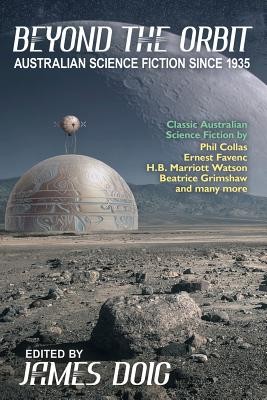
- We will send in 10–14 business days.
- Publisher: Wildside Press
- ISBN-10: 1479418897
- ISBN-13: 9781479418893
- Format: 15.2 x 22.9 x 1.4 cm, softcover
- Language: English
- SAVE -10% with code: EXTRA
Beyond the Orbit (e-book) (used book) | bookbook.eu
Reviews
Description
The history of early Australian science fiction has been well chronicled by literary historians. In searching for a synthesis of colonial Australian science fiction, they generally identify three genres into which most Australian science fiction of the period can be placed: lost civilisation novels, (including Lemurian and utopian novels); historical fantasies, which re-imagined Australia's colonial past (particularly the history of Australian exploration); and future invasion or future political novels (which dramatized fears of racial invasion or social chaos resulting from political upheaval or natural disasters like plague).
In the short form, early Australian science fiction is more heterogeneous. There were more outlets for the short form and more short stories were published, so we would expect a wider range of themes and subject matter, and indeed this is the case. The stories collected here indicate something of the richness and variety of science fiction written by Australian authors up the mid-1930s. We see some of the themes mentioned above, for example the lost civilisation story (Phil Collas's "The Inner Domain") and the future invasion story (Ernest Favenc's "What the Rats Brought"), but they offer something new and original, while other stories are built on the consequences of technological discoveries or advancements, for example Ernest Favenc's "The Land of the Unseen," H.B. Marriott Watson's "The Instrument," and Beatrice Grimshaw's "Lost Wings."
EXTRA 10 % discount with code: EXTRA
The promotion ends in 17d.10:50:24
The discount code is valid when purchasing from 10 €. Discounts do not stack.
- Publisher: Wildside Press
- ISBN-10: 1479418897
- ISBN-13: 9781479418893
- Format: 15.2 x 22.9 x 1.4 cm, softcover
- Language: English English
The history of early Australian science fiction has been well chronicled by literary historians. In searching for a synthesis of colonial Australian science fiction, they generally identify three genres into which most Australian science fiction of the period can be placed: lost civilisation novels, (including Lemurian and utopian novels); historical fantasies, which re-imagined Australia's colonial past (particularly the history of Australian exploration); and future invasion or future political novels (which dramatized fears of racial invasion or social chaos resulting from political upheaval or natural disasters like plague).
In the short form, early Australian science fiction is more heterogeneous. There were more outlets for the short form and more short stories were published, so we would expect a wider range of themes and subject matter, and indeed this is the case. The stories collected here indicate something of the richness and variety of science fiction written by Australian authors up the mid-1930s. We see some of the themes mentioned above, for example the lost civilisation story (Phil Collas's "The Inner Domain") and the future invasion story (Ernest Favenc's "What the Rats Brought"), but they offer something new and original, while other stories are built on the consequences of technological discoveries or advancements, for example Ernest Favenc's "The Land of the Unseen," H.B. Marriott Watson's "The Instrument," and Beatrice Grimshaw's "Lost Wings."


Reviews